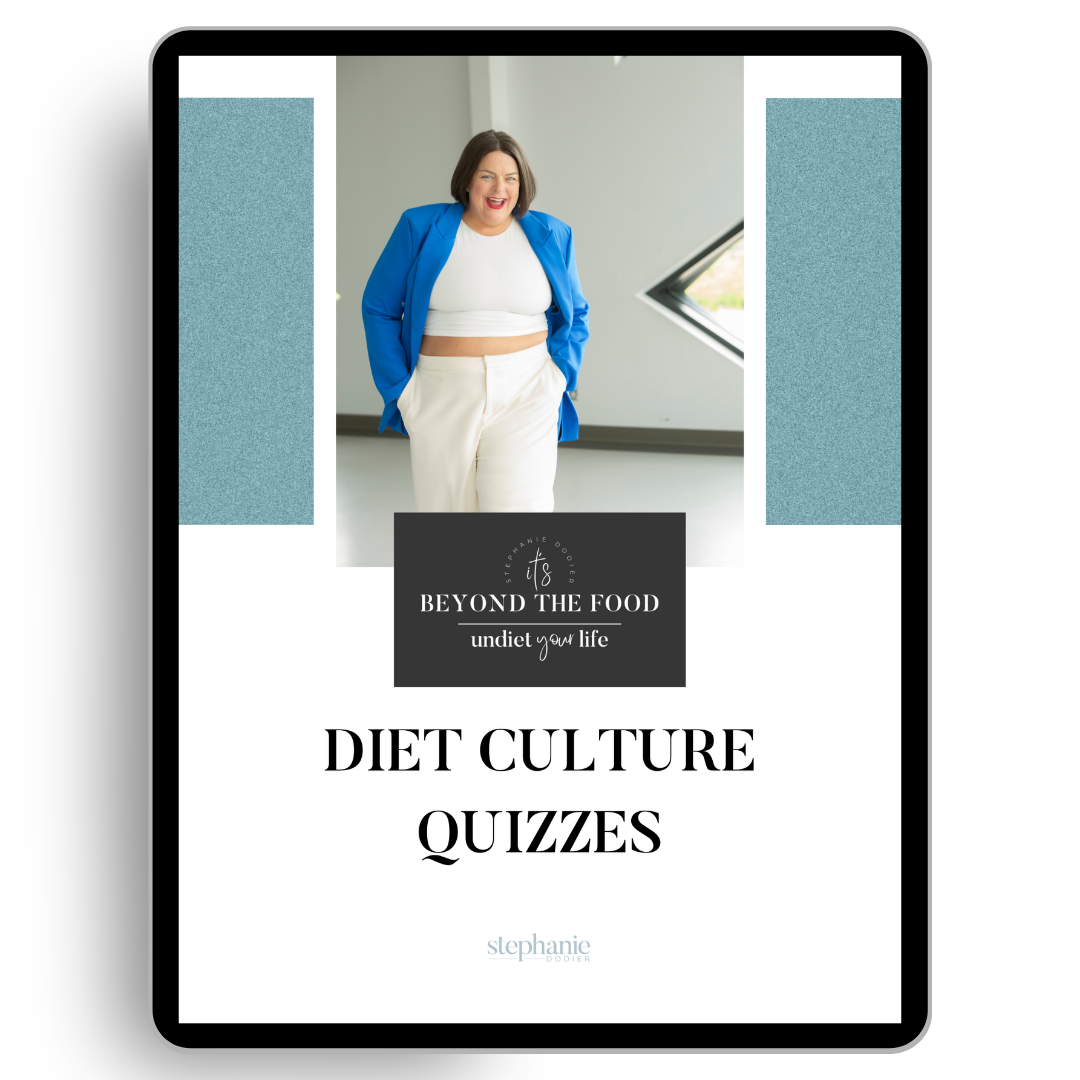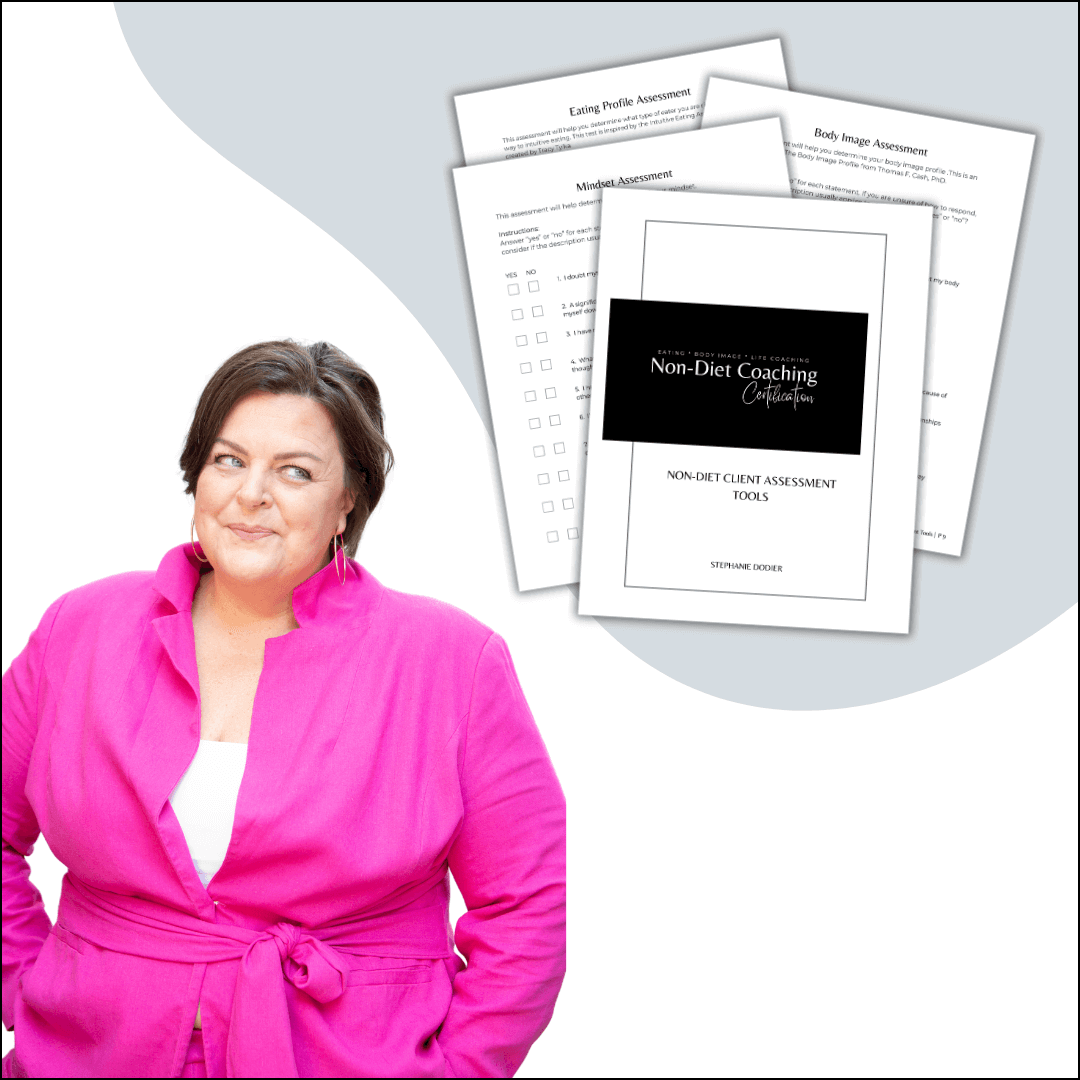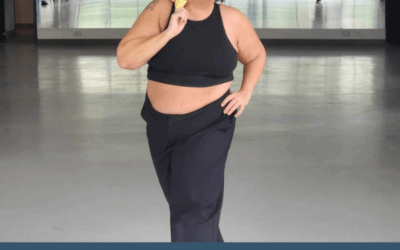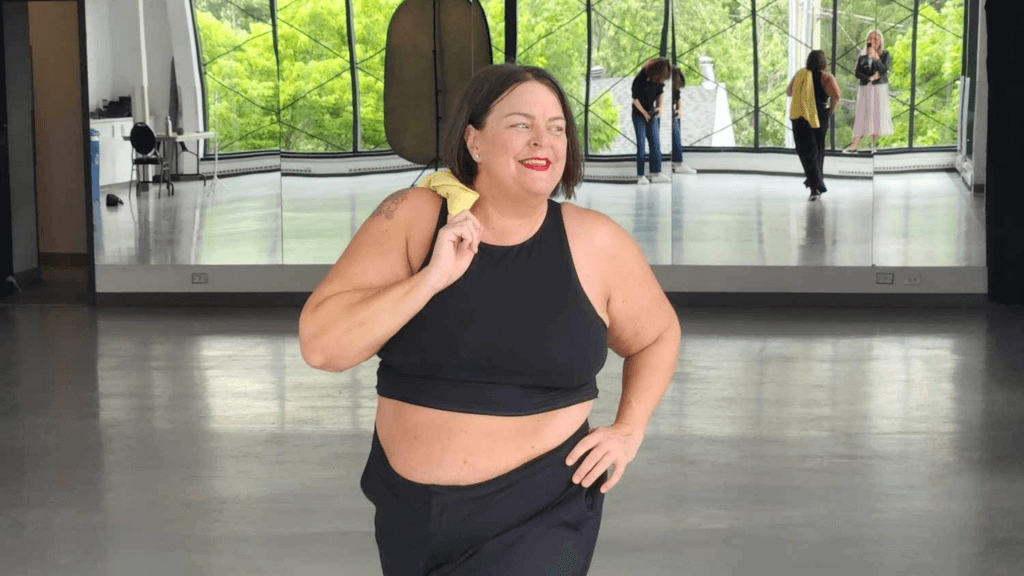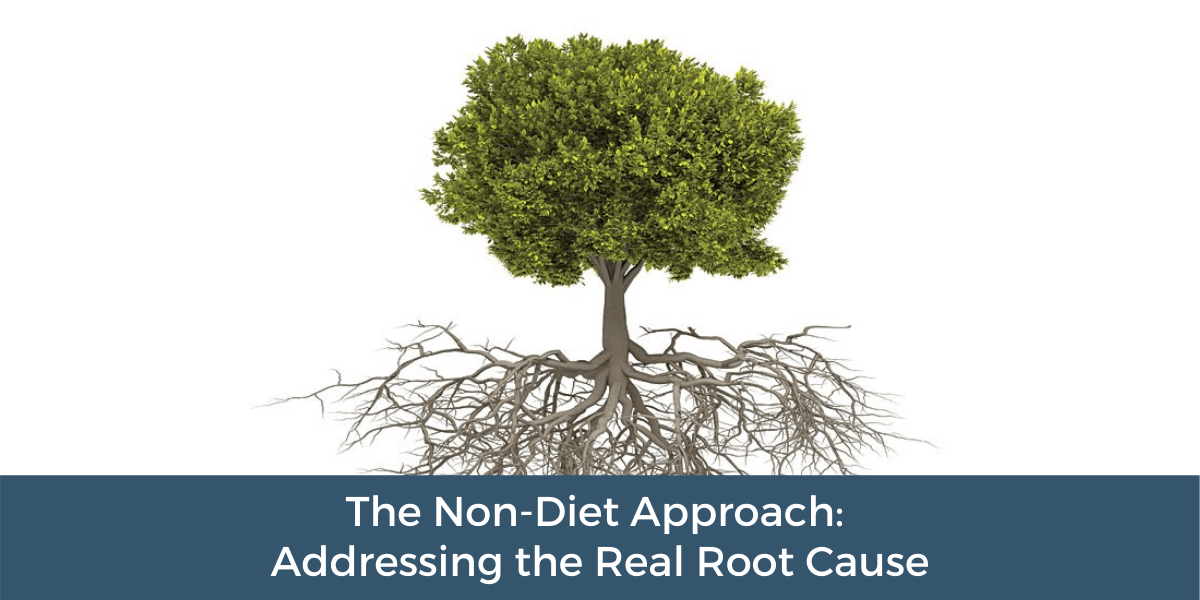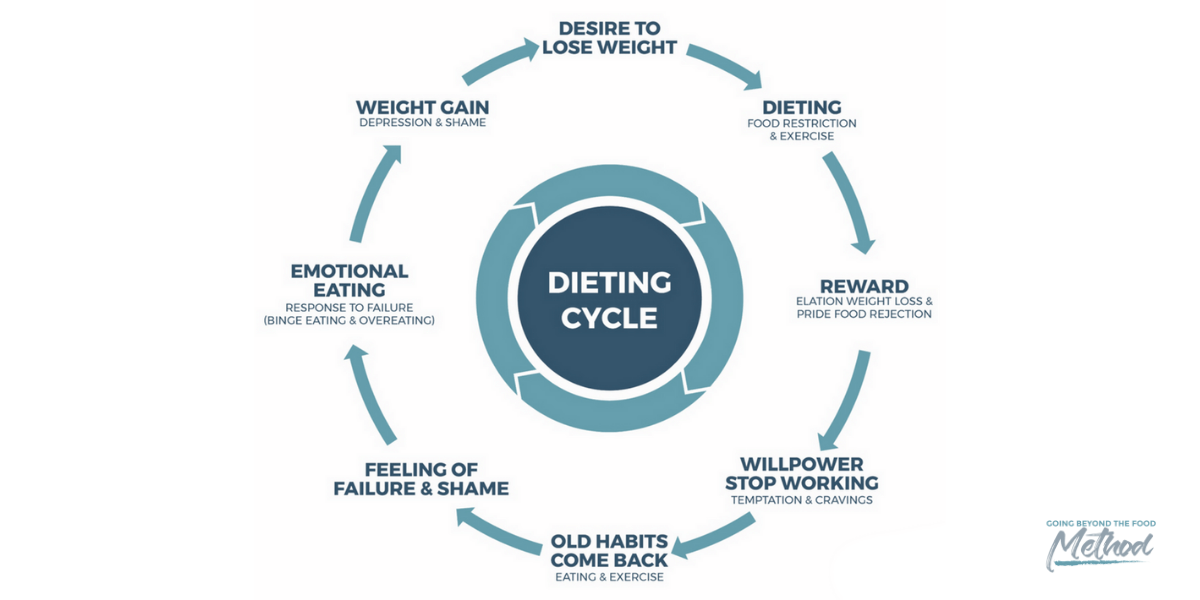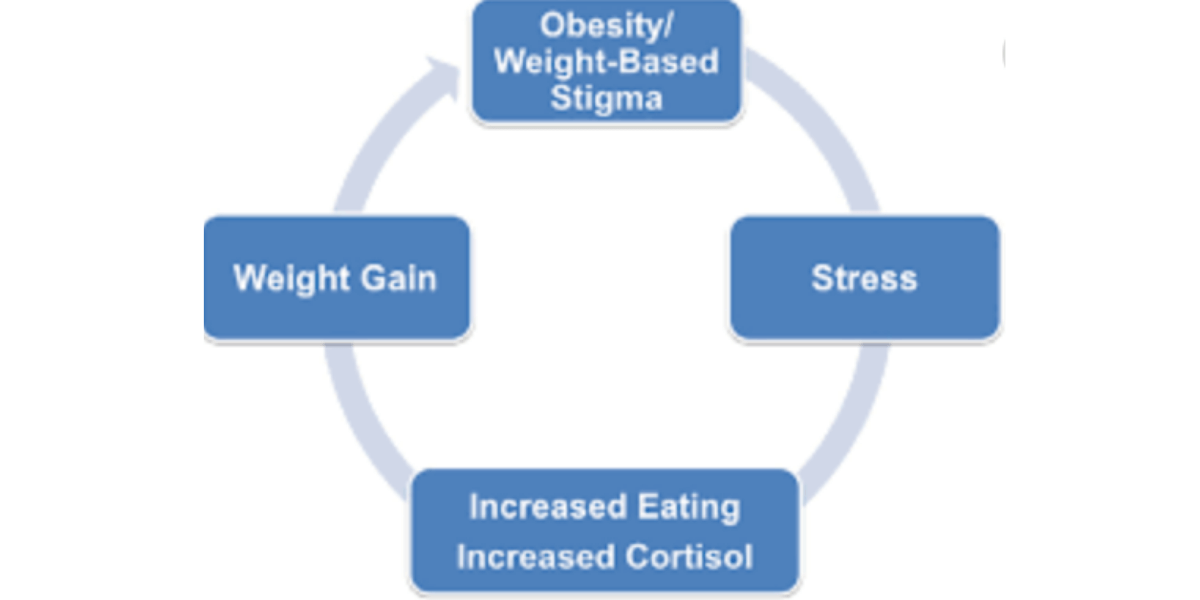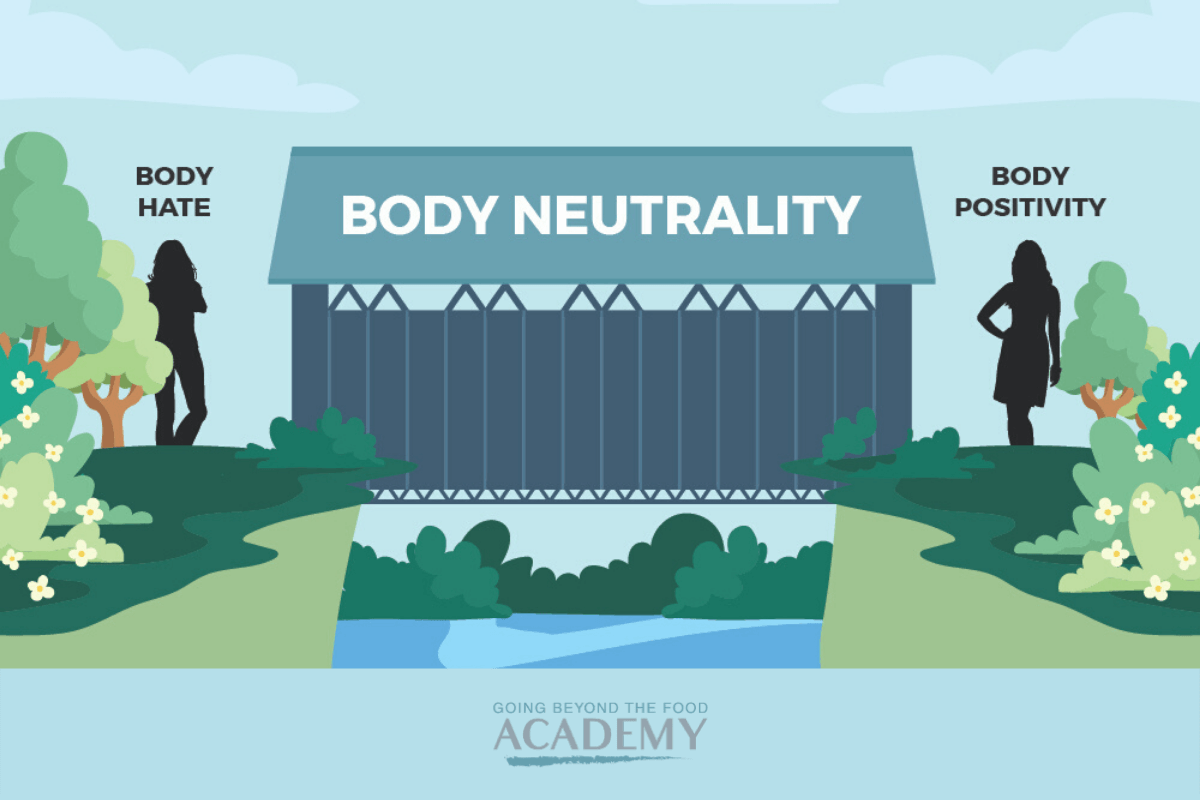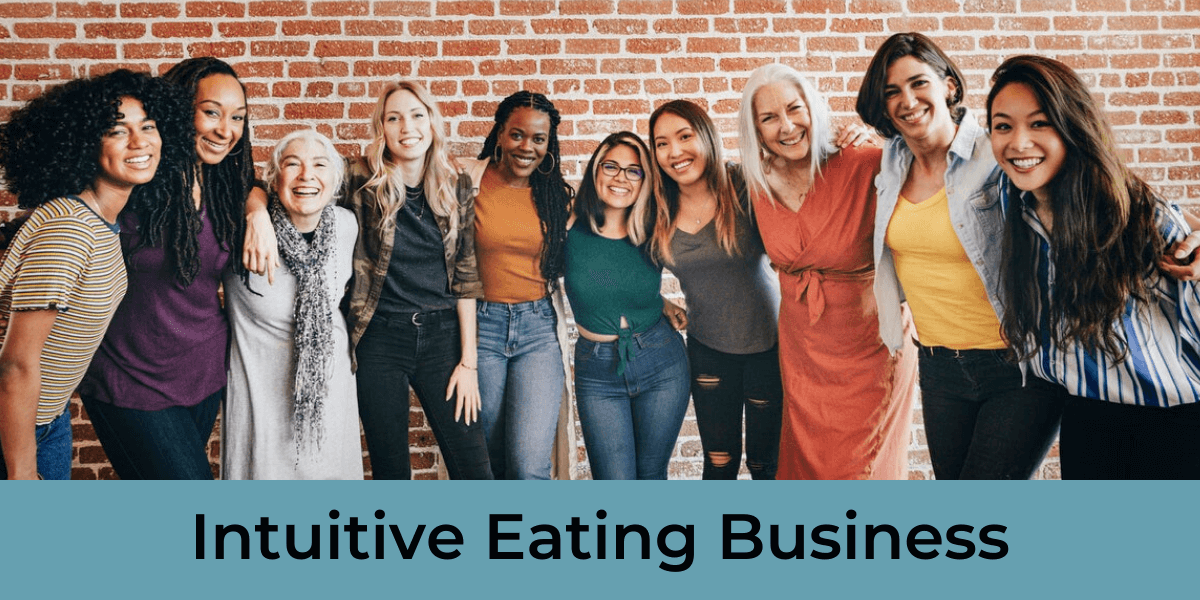At first glance, integrating intuitive eating and diabetes management may seem counter-intuitive. And for many reasons, most approaches to managing diabetes are based on weight loss and carbohydrate life-long restriction.
But there’s a major problem with these two approaches: a massive failure rate and unsustainability long term. As of today, diabetes is a noncurable disease, requiring that requires a treatment plan that can be maintained for the rest of your life. Unfortunately, dieting has a failure rate in a 2-5 years period.
And that’s when a weight-neutral approach to diabetes comes in!
Diabetes and weight-neutral approach to health
Switching from judgment to curiosity with food
Free Audio Guide to intuitive eating and diabetes
Intuitive Eating free mini-course
Diabetes Specific free resources
Diabetes and weight-neutral approach to health

A weight-neutral approach to health is based on the idea that your health status or risk level can’t be determined solely by your weight.
Moreover, it acknowledges that your weight is determined by a complex set of genetic, metabolic, physiological, cultural, social, and behavioural determinants. Many of these factors are either difficult or impossible to change.
Instead of focusing on a weight-oriented outcome to the management of diabetes, weight-neutral programs teach you to take charge of the factors that can help diabetes within your control.
So taking charge of these factors among many others will help you improve your well-being and management of diabetes regardless of your weight.
Here are just a few of these factors:
1. Stress management
Stress is an important contributor to pathological conditions in humans. And hormonal changes that occur during acute and chronic stress situations can affect glucose homeostasis. In fact, a large body of evidence supports an association between stress and hyperglycemia (diabetes).
2. Weight stigma
The experience of discrimination and stigma around one’s body has a direct influence on health behaviours and stress levels. And research is pointing at weight stigma as a major contributor to health outcomes including diabetes.
3. Movement
Consistent gentle & enjoyable body movement has proven time after time to reduce blood sugar dysregulation. Moreover, the recommendation from the American Diabetes Association is clear on the benefit of all forms of diabetes.
4. Body Dissatisfaction
Internalize weight stigma leads people to become increasingly dissatisfied with their bodies and make poor health decisions.
And a 2013 study published by the Journal of Obesity found no link between body weight and the way women feel about themselves. However, the findings show a link between how women feel about themselves and their health behaviours. In other words, the better they feel about their bodies, the more likely they are to take care of themselves leading to a better health outcome.
What is intuitive eating

When people ask what eating intuitively means, this is the definition that usually comes to mind: “a self-care eating framework that uses your body’s internal cues of hunger, fullness, and satisfaction to guide your eating behaviour.” It’s literally trusting your gut! Note that this intuitive eating definition emphasizes self-care and not weight loss.
Intuitive eating, an evidence-based approach to eating that allows you to be the expert of your own body. So this approach enables you to develop a healthy relationship with food and your body. And it teaches you to trust your ability to meet your own needs, distinguish between physical and emotional hunger, and ultimately develop body wisdom.
And eating intuitively is a well research process and proven health framework supported by more than 100 intuitive eating studies as of 2019.
Nutrition and Diabetes
There is no doubt that what we eat influences our blood sugar. And it’s a known fact that carbohydrates will increase our blood sugar level . However, not all carbohydrates have the same influence on the level of blood sugar.
Furthermore, studies are showing that individuals’ blood glucose levels respond very differently to different foods. So this is what we call bio-individuality. In other words, there’s no one “diabetic diet” for every person diagnosed with diabetes. And while there are definitely generalities with eating and lifestyle that can be helpful, there isn’t a one fit all approach.
An individual needs to explore what works for them and what doesn’t for them. So as life unfold the individual reaction to certain food will also vary and change with time.
This is how intuitive eating is the perfect approach to diabetes.
Switching from judgment to curiosity with food
Intuitive eating is part of a Health At Every Size™️ approach to diabetes and a global weight-neutral approach to health.
Intuitive eating will teach you to become curious about how certain food makes you feel. And to pay attention to how your blood sugar is post-meal, be attentive to how you feel after eating, and your overall level of energy.
Being an intuitive eater will allow you to engage with food objectively without judgment. So it puts you back into power when making your food choice. And it helps you build trust and respect for your body instead of fear and hatred.
Intuitive eating is really about switching to love instead of fear when it comes to food and diabetes.
Audio guide to Intuitive Eating and Diabetes
This audio guide (podcast) is a collaboration with two of my colleagues. Both are experts in the treatment of diabetes under the lens of Health At Every Size and Intuitive Eating.
Rebecca Scritchfield is a Washington DC-based Registered Dietitian Nutritionist and Certified Exercise Physiologist. And she has been practicing weight inclusive, HAES care since 2008. Also, Rebecca is the author of the book Body Kindness and the host of the Body Kindness podcast.
Glenys Oyston is a Los Angeles-based Registered Dietitian Nutritionist. And she has been practicing a HAES® philosophy since 2010 and has provided extensive diabetes education for the past five years. Also, Glenys is the co-host of the Dietitians Unplugged podcast.
What we cover in this free audio:
- Is weight loss the solution to treating diabetes ?
- 5 most frequent myths about diabetes debunk
- The Health At Every Size approach to treating diabetes
- Where to find resources to integrate a non-restrictive approach to preventing and treating diabetes.
Diabetes Specific Resource
Dr. Lindo Bacon has written a guide to help people navigate the journey of integrating the Health at Every size principle in their approach to diabetes management. You can access this free Health At Every Size guide here.
My colleagues Rebecca Scritchfield & Glenys Oyston both registered dietitians who know that self-care for diabetes doesn’t have to involve restriction and weight loss have created an education & support group. The Health at Every Size® (HAES®) Care for Diabetes education and support group can be accessed here.
Get started – Next steps
Are you are ready to learn more about how you can approach your health with a weight neutral lense?
You can access all of our services on our work with us page. We have a number of programs and service levels enabling us to serve most women:
Free Resources and Masterclasses: Get started and get to know us better!
Private coaching with Stephanie and her team Stephanie and her team of Certified Non-Diet Coaches are waiting to support you in a one-to-one setting with an individualized plan.
Undiet Your Life group coaching program is for women to learn how to eat intuitively, become body neutral, and learn self-coaching at their own pace while being supported in a group setting by Stephanie and her team of Certified Non-Diet Coaches.
Non-Diet Coaching Certification for professionals ready to integrate the Going Beyond The Food Method™️ in their practice and for women wanting to become Certified Coach and build a business coaching other women beyond the food.



